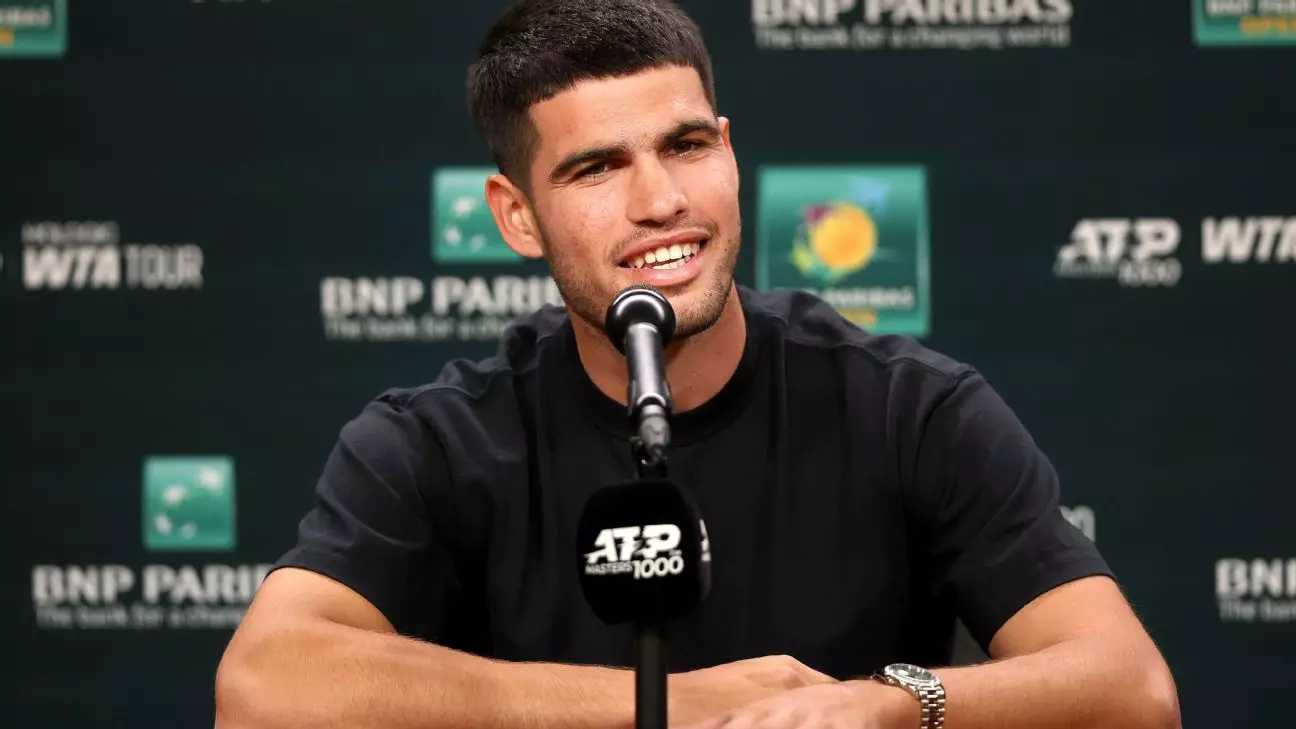In the evolving landscape of professional tennis, fresh voices from the upcoming generation are starting to rise. Among them is Carlos Alcaraz, a four-time Grand Slam champion whose remarkable talent and poise have not only captured the attention of the sports world but have also placed him at a crossroads regarding significant issues within the sport. Recently, Alcaraz expressed his concerns regarding a class-action lawsuit aimed at the very institutions governing tennis. This lawsuit, driven by the Professional Tennis Players’ Association (PTPA)—co-founded by Novak Djokovic—challenges the existing power structures and claims they operate as a „cartel.“
Alcaraz’s Unexpected Role in a Controversy
What makes Alcaraz’s stance compelling is his clear distance from the PTPA’s initiative. During a pre-tournament news conference ahead of the Miami Open, he stated, „I am not supporting that.“ This candid admission reflects a nuance often overlooked in sports activism: the notion that not all players share a unified vision on how to tackle the systemic issues plaguing tennis. Alcaraz’s non-support, expressed with a tone that veered from confusion to assertiveness, emphasizes that he is still charting his path and does not inherently align with the dissension spearheaded by his contemporaries.
This candidness opens a Pandora’s box of dialogues surrounding the topic of player representation and the demanding schedules that athletes face. Alcaraz was reportedly taken aback to find himself referenced in the lawsuit, noting that he learned of it through social media—a sign of the shifting dynamics where athletes may not always be consulted before being thrust into contentious debates that concern them.
The Complexity of Player Sentiment
The heart of the matter lies in the contrasting opinions within the player community regarding tournament scheduling. Alcaraz highlighted the duality of perspectives—some players advocate for more competitive opportunities, while others decry the packed calendar as detrimental to well-being. His comment, stating that excessive tournament demands could „kill“ players, illustrates the rising tensions around player welfare. This growing strain is critical for the ATP and WTA to acknowledge, lest they risk further alienating their athletes.
Moreover, Alcaraz’s reflections on tournament scheduling add another layer to this conversation. The phrasing of his phrase, “probably they are going to kill us in some way,” signifies an underlying fear among players that their health and careers could be compromised for the sake of profit and entertainment. The essence of this struggle lies not just in seeking better conditions but in re-establishing the balance of power between athletes and the governing bodies that regulate their careers.
Charting New Territories
As Alcaraz continues his ascent within this rich and storied sport, his journey not only embodies the trials of an extraordinary athlete but also the larger fight against outdated organizational frameworks. The tumultuous atmosphere surrounding the PTPA and its legal battles reflects broader societal shifts wherein athletes are increasingly steered towards advocating for their rights. Alcaraz’s decision to distance himself from this movement reveals a thoughtful introspection about the future of tennis, establishing a counter-narrative that is equally vital to consider as the industry transforms.
While the laws and regulations governing tennis may come under scrutiny, the real revolution may lie in the players‘ ability to shape their destinies, even amid discord. Alcaraz’s authentic engagement with these discussions exemplifies a younger generation poised to redefine what it means to be an athlete in the 21st century—a legacy that is undoubtedly just beginning to unfold.


Napsat komentář